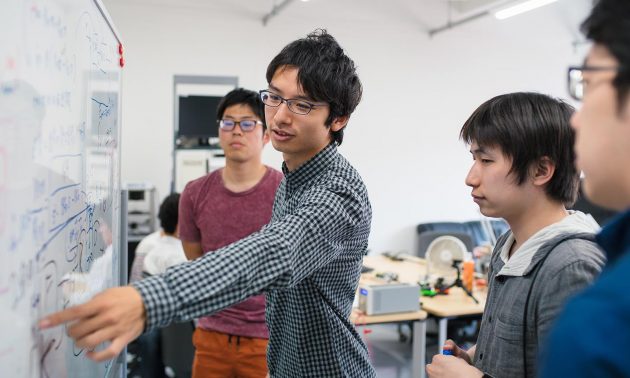Asian students among those affected by tougher US visa laws

NEW YORK, Dec 26, 2018, FMT. Malaysian students interested in furthering their studies at American universities will face a more restrictive US visa policy, reported the Free Malaysia Today.
The new policy announced in August by Trump could have a deterrent effect on prospective students wanting to enter the US for higher education.
Asian students, including from Malaysia, find it attractive to study subjects such as engineering, computer sciences, highly specialised branches of medicine, etc. in the US.
The Stevens Institute of Technology in Hoboken, New Jersey, attracts a large number of Asian students, particularly from China, India and, increasingly, from Malaysia.
China, India and South Korea account for some 56.1% of all foreign students studying in the US.
“After I complete my education, I would like to gain some practical experience by working with a US company for sometime before I return to Malaysia. Will the new visa policy deny me what has been a long tradition followed by foreign students who are happy to get some practical training before returning to their native country?”, a Malaysian student who wanted to remain anonymous told Bernama.
The largest number of students in the US in the last two years were from China (363,431) and India (196,271).
Malaysia, with 8,271 students, was the second largest source of students from the Asean region, after Indonesia at 8,650.
Fearing the new restrictions would deter foreign students from coming to the US, 65 US universities, including big names such as Harvard and MIT, have come together to challenge Trump’s new restrictive visa policy governing foreign students in the court.
They warn that the new restrictions will hurt the country’s education system, with foreign students preferring higher education in Canada, United Kingdom and Australia.
Last week, Harvard released an “amicus brief” voicing objections against US visa policy changes announced in August restricting visa overstay rules for foreign students, and opposed US revision of rules for calculating unlawful stay time for visa-holding students.
The amicus brief supports Guilford College and others in the lawsuit against US Secretary of Homeland Security Kirstjen M. Nielsen.
The plaintiffs called for a temporary hold on new immigration policies that place restrictions on overstaying a visa.
Under longstanding immigration policies, anyone who stays more than six months after the visa expiry can be forced to return to their country of origin, and clapped with a three-year ban from the US.
Under the new rules, the Department of Homeland Security (DHS) can do away with the six-month period, and one’s stay can be considered illegal a day after the completion of studies or after the visa expires.
The move would also economically hurt the US universities who profit from foreign students studying in the US.
According to the Association of International Educators, foreign students contributed over US$37 billion to the US economy in 2017, creating more than 450,000 jobs, with every seven international students supporting three US jobs.
A study of American startup companies with a value of US$1 billion or more, pointed out that nearly one-quarter of such businesses had a founder who first came to the US as a student.
The backdated rule introduces significant uncertainty and punishes students for reasons that are frequently beyond their control.
Sometimes, students and exchange visitors can fall out of status due to clerical and technical errors, often because of someone else’s making.
Meanwhile, the number of foreign students seeking admission to US universities and other institutions has fallen for the second successive year.
According to the Institute of International Education, new foreign student registrations for the 2017/18 school year fell 6.6% during the 2016/17 period, when the number declined by 3.3%.
Analysts specialising in education and immigration attribute the decline to the visa and immigration changes made by the Trump administration.
The drop was aided by a strong dollar making US education more expensive for foreign students.